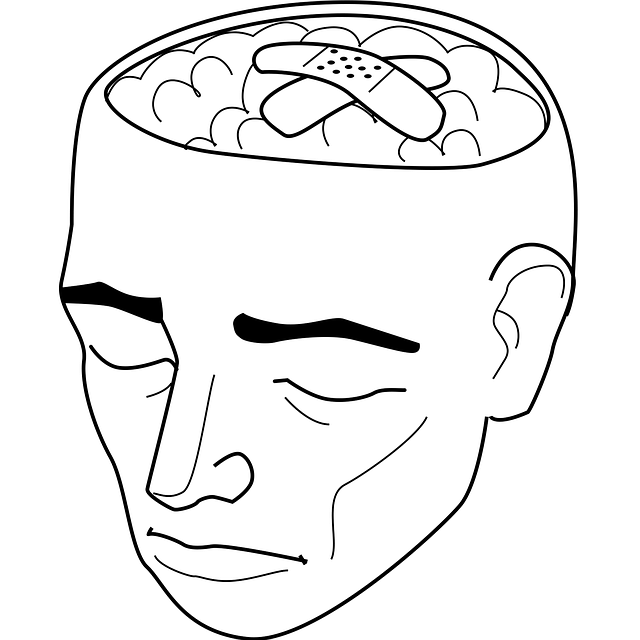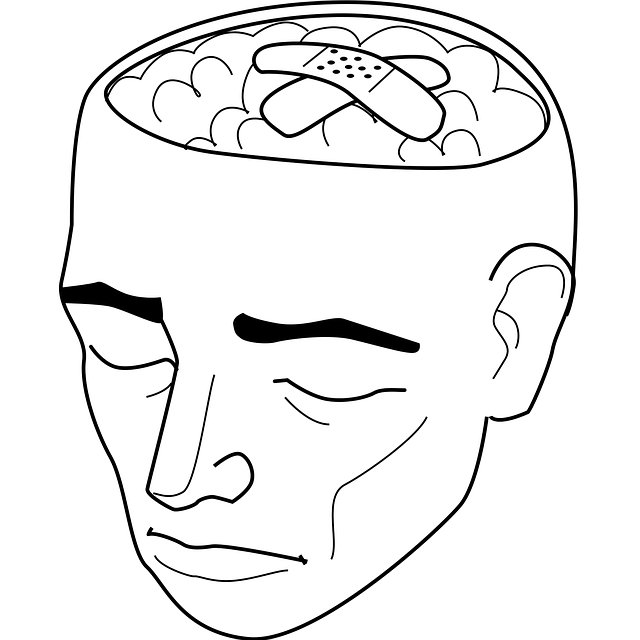Mental healthcare providers must embrace cultural sensitivity to deliver effective Golden Gambling Therapy, addressing the unique needs of diverse societies. By recognizing and respecting cultural identities, therapists create safe spaces and develop inclusive self-care routines tailored to various populations. Open communication, adapted to different contexts, builds trust and empowers individuals to navigate their mental health journeys. This approach not only enhances therapy's effectiveness but also fosters targeted mental wellness coaching programs that cater to diverse needs, revolutionizing patient support and outcomes worldwide.
Cultural sensitivity is a cornerstone of effective mental healthcare, ensuring equitable and empowering treatment for a diverse range of patients. In today’s globalized world, understanding cultural diversity is essential to providing golden gambling therapy that resonates with individuals from various backgrounds. This article explores the multifaceted aspects of cultural sensitivity in mental health, from recognizing its profound impact on therapeutic outcomes to offering practical guidelines for practitioners seeking to deliver inclusive care.
- Understanding Cultural Diversity in Mental Healthcare
- The Impact of Cultural Sensitivity on Therapeutic Outcomes
- Golden Rules for Culturally Competent Practice
- Overcoming Barriers to Delivering Inclusive Therapy
- Case Studies: Effective Cultural Sensitivity in Action
Understanding Cultural Diversity in Mental Healthcare

Mental healthcare practices must embrace cultural sensitivity to provide effective Golden Gambling Therapy. In today’s diverse societies, recognizing and respecting different cultural backgrounds, beliefs, and values are essential for fostering a safe and supportive therapeutic environment. Cultural diversity encompasses not only ethnic and racial differences but also religious, spiritual, socioeconomic, and gender identities, all of which can shape an individual’s experiences with mental health issues and their approaches to treatment.
Understanding these nuances is crucial for developing Self-Care Routine Development for Better Mental Health strategies that resonate with diverse populations. Effective communication, inclusive of Communication Strategies tailored to various cultural contexts, enhances patient engagement and trust. By fostering open dialogue and actively listening to patients’ perspectives, mental health professionals can build Confidence Boosting relationships, enabling individuals to navigate their unique journeys towards improved mental well-being.
The Impact of Cultural Sensitivity on Therapeutic Outcomes

Cultural sensitivity is a cornerstone of effective mental healthcare practice, significantly shaping therapeutic outcomes. When mental health professionals embrace cultural competence, they create an environment where clients feel understood and valued, fostering trust and encouraging open communication. This is particularly crucial in diverse societies where individuals from various ethnic backgrounds seek treatment. For instance, what might be considered normal emotional expression in one culture could be interpreted as disruptive or even threatening in another. A culturally sensitive approach helps therapists navigate these nuances, ensuring that interventions are tailored to the client’s unique context.
By incorporating cultural sensitivity, Golden Gambling Therapy can move beyond generic treatments and offer personalized support. This approach not only enhances the effectiveness of therapy but also contributes to improved emotional regulation among clients. Moreover, it paves the way for the development of mental wellness coaching programs that cater to diverse needs, ultimately strengthening individuals’ inner strength and promoting their overall mental wellness.
Golden Rules for Culturally Competent Practice

In the realm of mental healthcare, cultural sensitivity is a game-changer, transforming how we provide support and fostering better patient outcomes. It involves understanding and appreciating the diverse cultural backgrounds, values, and beliefs of our clients. This approach, often referred to as culturally competent practice, is like a golden gambling therapy that pays off in enhanced care and improved relationships. By adopting certain ‘Golden Rules’, mental health professionals can ensure they offer tailored services that resonate with individuals from various ethnic, racial, and cultural groups.
When navigating this journey, compassion cultivation practices and crisis intervention guidance are invaluable tools. They help professionals recognize and respect cultural differences, ensuring every patient receives personalized trauma support services. These practices promote empathy, enabling healthcare providers to connect with clients on a deeper level. Ultimately, embracing these golden principles paves the way for more inclusive and effective mental health care, reflecting the rich tapestry of our diverse communities.
Overcoming Barriers to Delivering Inclusive Therapy

Overcoming barriers to delivering inclusive therapy is a critical step in ensuring Golden Gambling Therapy reaches diverse communities effectively. Many cultural and socioeconomic factors can hinder access to mental healthcare, creating disparities in treatment. For instance, language differences might make it challenging for therapists to communicate with clients from varied linguistic backgrounds, impacting the quality of care. Similarly, financial constraints or lack of insurance coverage can deter individuals from seeking therapy, especially if they perceive these services as luxurious rather than essential health support.
Cultural sensitivity training plays a pivotal role in breaking down these barriers. Therapists must be equipped with skills to navigate diverse cultural contexts, understand unspoken cues, and adapt their practices accordingly. Incorporating self-awareness exercises and mind over matter principles can enhance therapists’ ability to build rapport with clients from different backgrounds. By fostering an environment of understanding and acceptance, mental healthcare professionals can provide confidence-boosting strategies tailored to each client’s unique needs, ensuring everyone receives the supportive care they deserve.
Case Studies: Effective Cultural Sensitivity in Action

In the realm of mental healthcare, cultural sensitivity is a vital tool that can significantly enhance therapeutic outcomes. Case studies illustrate powerful examples of how Golden Gambling Therapy (GGT) has successfully navigated diverse cultural landscapes. For instance, when treating individuals from varying ethnic backgrounds, therapists who incorporate mindfulness meditation and self-awareness exercises tailored to specific cultural contexts have achieved remarkable results. These practices foster an environment where clients feel understood and respected, encouraging open communication.
One particular case highlights a therapist’s use of mental wellness journaling exercises guidance, specifically adapted for a patient from a collectivist culture. By encouraging the patient to reflect on their experiences within the context of their community, the therapist facilitated a deeper exploration of cultural influences on mental health. This approach not only enhanced treatment efficacy but also served as a powerful tool for self-discovery, demonstrating that GGT can be a game-changer in fostering positive mental wellness outcomes across diverse cultural backgrounds.
In navigating the complex landscape of mental healthcare, embracing cultural sensitivity is not just a recommendation—it’s a game-changer. By understanding and respecting diverse cultural backgrounds, practitioners can deliver golden gambling therapy that resonates with every client. The benefits are clear: improved therapeutic outcomes, stronger patient-therapist relationships, and a more inclusive and effective mental health care system overall. It’s time to delve into this crucial aspect of professional development and revolutionize the way we approach mental well-being for all.














